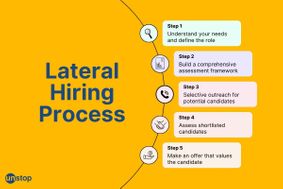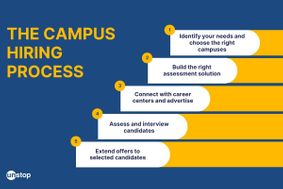- Sales Executive Job Description Template
- Sales Executive Roles & Responsibilities
- Essential Skills and Qualifications for Sales Executives
- Tips for Crafting an Effective Sales Executive Job Description
- Sales Executive Job Description Samples
- Frequently Asked Questions
- Business Analyst Job Description Template
- Overview of Business Analyst Role and Responsibilities
- Key Skills and Qualifications for Business Analysts
- Sample Job Descriptions for Business Analysts
- Tips to Write a Business Analyst Job Description
- Closing Thoughts
- Frequently Asked Questions (FAQs)
- Data Analyst Job Description Template
- Key Responsibilities of a Data Analyst
- Essential Skills & Qualifications for Data Analysts
- Data Analyst Job Description Samples
- Closing Thoughts
- Frequently Asked Questions (FAQs)
- Role of a Business Development Executive: Overview
- Business Development Executive Job Description Template
- BDE Roles & Responsibilities
- Key Requirements for a Business Development Executive
- BDE Job Description Samples
- Tips for Writing an Effective BDE Job Description
- Closing Thoughts
- Frequently Asked Questions (FAQs)
- Content Writer Job Description Template
- Understanding Content Writer's Role
- Skills and Qualifications of a Content Writer
- Sample Job Descriptions for Content Writer
- Quick Tips for Creating The Perfect Content Writer Job Description
- Closing Thoughts
- Frequently Asked Questions
- Accountant Job Description Template
- What’s the Role of an Accountant?
- Essential Skills and Abilities for Successful Accountants
- Education and Experience Requirements for Accountants
- Accountant Job Description Samples
- Closing Thoughts
- Frequently Asked Questions (FAQs)
- Understanding the Account Executive Role
- How is the role of an Account Executive different from other related roles?
- Writing an Effective Account Executive Job Description
- Sample Account Executive Job Description
- Final Remarks
- Frequently Asked Questions
- HR Recruiter Job Description Template
- HR Recruiter Role: Responsibilities, Skills & Qualification
- HR Recruiter Job Description Samples
- Closing Thoughts
- Frequently Asked Questions
- Marketing Executive: Responsibilities & Skills
- Template for Marketing Executive Job Description
- Marketing Executive Job Description Samples
- Tips to make marketing executive job description engaging
- Frequently Asked Questions
- HR Executive Key Responsibilities
- Skills and Requirements
- HR Executive vs HR Manager
- HR Executive Job Description Template
- HR Executive Job Description Samples
- Conclusion
- Frequently Asked Questions
- Role of HR Managers in 2024
- HR Manager Job Description Template
- HR Manager Responsibilities: Overview
- Essential Skills and Qualifications for HR Managers
- HR Manager Job Description Samples
- Final Remarks
- Frequently Asked Questions
- Assistant Manager Job Description: Responsibilities
- Assistant Manager Job Description: Required Skills and Qualifications
- Assistant Manager Job Description Template
- Samples for Assistant Manager Job Description
- Summing Up
- Frequently Asked Questions
- Project Coordinator Job Description: Duties, Skills & Qualifications
- Project Coordinator Job Description Template
- Project Coordinator Job Description Samples
- Final Remarks
- Frequently Asked Questions
- Sales Manager: Job Brief
- Sales Manager Job Description Template
- Key Responsibilities of a Sales Manager
- Essential Skills and Qualifications
- Sales Manager Job Description Samples
- Attracting and Hiring Top Sales Manager Talent
- Frequently Asked Questions
- Executive Assistant Job Description Overview
- Executive Assistant Job Description Template
- Executive Assistant Responsibilities
- Essential Skills and Qualifications for Executive Assistants
- Executive Assistant Job Description Samples
- Administrative vs Executive Assistant Roles
- Conclusion
- Frequently Asked Questions
- Job Overview for Sales Coordinator Position
- Sales Coordinator Job Description Template
- Sales Coordinator Roles and Responsibilities
- Administrative Support Provided by Sales Coordinators
- Sales Coordinator Skills & Qualifications
- Sales Coordinator Job Description Samples
- How to Use a Sales Coordinator Job Description Template
- Final Remarks
- Frequently Asked Questions
- Financial Analyst Job Description Overview
- Financial Analyst Job Description Template
- Financial Analyst Roles and Responsibilities
- Educational Requirements and Skills Needed
- Financial Analyst Job Description Samples
- Final Remarks
- Frequently Asked Questions
- Product Manager Job Description: Understanding the Role
- Template For Product Manager Job Description
- Product Manager Job Description Samples
- Summary
- Frequently Asked Questions
- Operations Executive Job Description: Understanding the Role
- Template for Operation Executive Job Description
- Operation Executive Job Description For Entry Level and Experienced Candidates
- Closing Thoughts
- Frequently Asked Questions
- Relationship Manager Job Role Overview
- Template For Effective Relationship Manager Job Description
- Relationship Manager Job Description Samples
- Summary
- Frequently Asked Questions
- What’s the Role of Office Administrator?
- Office Administrator Job Description Template
- Office Administrator Duties
- Essential Skills and Requirements
- Crafting an Office Administrator Job Description
- Office Administrative Job Description Samples
- Office Administrator Job Description: Sample 2
- Closing Thoughts
- Frequently Asked Questions
- Quality Analyst Job Description Template
- Quality Analyst: Responsibilities, Skills & Qualification
- Quality Analyst Job Description Samples
- Frequently Asked Questions
- Java Developer Job Description Template
- Java Developer Role: Responsibilities, Skills, Qualifications
- Java Developer Job Description Samples
- Summing up
- Accounts Payable: What Does It Do?
- Accounts Payable Job Description Template
- Skills and Qualifications For An AP Role
- Steps To Write An Accounts Payable Job Description
- Accounts Payable Job Description Samples
- Summary
- Frequently Asked Questions
- Role Overview
- HR Operations Manager Job Description Template
- Key Responsibilities
- Required Skills and Competencies
- Qualifications Needed
- Job Description: Things To Include
- HR Operations Manager Job Description Samples
- Closing Thoughts
- Frequently Asked Questions
Financial Analyst Job Description With Customizable Template

Are you on the lookout for talented financial analysts to join your team? Delve into the critical role these professionals play in analyzing market trends, evaluating data, and influencing strategic decisions. Explore the essential duties and skills required for the role, and accordingly, write an effective financial analyst job description.
Financial Analyst Job Description Overview
Financial analysts are experts in financial data analysis. They review company financial statements, market trends, and economic indicators. By analyzing this data, they can identify areas of improvement or potential risks and provide insights for decision-making.
Financial analysts use various tools like Excel spreadsheets and statistical software to interpret the data accurately. They also assess the performance of stocks, bonds, and other investments to guide organizations on where to allocate their resources effectively.
Financial analysts play a crucial role in industries such as investment banking, corporate finance, and consulting firms. Their expertise is essential for companies looking to navigate complex financial landscapes successfully. By providing actionable advice, financial analysts help businesses enhance their financial performance.

Financial Analyst Job Description Template
Job Title: Financial Analyst
Company Overview:
[Company Name] is a [industry/sector] company working to [brief description of the company's mission and goals]. We are seeking a talented and detail-oriented Financial Analyst to join our finance team and contribute to the financial planning, analysis, and decision-making processes.
Responsibilities:
Financial Planning and Analysis:
Assist in the development of financial models for forecasting, budgeting, and long-term planning.
Analyze financial data and trends to provide insights that support strategic decision-making.
Budgeting and Forecasting:
Collaborate with various departments to gather budget inputs and forecasts.
Prepare comprehensive budgets and financial forecasts, providing variance analysis.
Financial Reporting:
Generate regular financial reports, including income statements, balance sheets, and cash flow statements.
Present financial information to management, highlighting key performance indicators.
Performance Metrics:
Monitor and analyze key financial and operational performance metrics.
Provide recommendations for improving financial performance and efficiency.
Cost Analysis:
Conduct cost-benefit analysis for various projects and initiatives.
Identify areas for cost reduction and efficiency improvement.
Market Research:
Stay updated on industry trends, economic factors, and competitor activities.
Provide insights on the potential impact on the company's financial performance.
Ad Hoc Analysis:
Undertake special financial analysis projects as assigned by management.
Respond to ad hoc requests for financial information and analysis.
Qualifications:
- Bachelor's degree in Finance, Accounting, Economics, or a related field.
- Proven experience as a Financial Analyst or in a similar role.
- Strong proficiency in financial modeling and analysis.
- Advanced knowledge of Microsoft Excel and financial software.
- Excellent analytical, problem-solving, and communication skills.
Experience:
Minimum of [X years] of experience in financial analysis or related roles.
Additional Skills:
- Professional certification such as CFA or CPA is desirable.
- Familiarity with ERP systems and financial databases.
How to Apply: Interested candidates are invited to submit their resume to [specified email ID]. Please include "Financial Analyst Application" in the subject line. The application deadline is [Date].
Financial Analyst Roles and Responsibilities
- Financial Planning and Analysis (FP&A): Financial analysts are responsible for developing and maintaining financial models to facilitate budgeting, forecasting, and long-term planning. They analyze historical and current financial data to provide insights that aid in strategic decision-making.
- Budgeting and Forecasting: Financial analysts collaborate with various departments to gather input for budgeting and forecasting processes. They play a crucial role in preparing comprehensive budgets and financial forecasts, providing management with a clear understanding of the organization's financial outlook.
- Financial Reporting: Financial analysts generate regular financial reports, including income statements, balance sheets, and cash flow statements. These reports help management and stakeholders assess the company's financial health, track performance against goals and make informed decisions.
- Cost Analysis: Financial analysts conduct cost-benefit analysis for projects and initiatives, evaluating the financial impact of various decisions. They identify areas for cost reduction, efficiency improvement, and provide recommendations to optimize the allocation of resources.
- Performance Metrics Monitoring: Financial analysts monitor and analyze key financial and operational performance metrics. They track key performance indicators (KPIs), assess trends, and provide insights to management on areas that require attention or improvement. This involves a continuous review of the company's financial health and performance against established benchmarks.
- Evaluating Investment Options: Financial analysts evaluate different investment options by analyzing risk factors associated with each opportunity. They assess various investment vehicles such as stocks, bonds, or real estate to determine potential returns and risks involved. Based on their analysis, financial analysts provide recommendations to clients or company management regarding the most suitable investments.
If you’re looking to hire for this role, post the financial analyst job description on Unstop and find top talent.
Educational Requirements and Skills Needed
Qualifications
To become a financial analyst, individuals typically need a bachelor's degree in finance, accounting, economics, or a related field. This educational background provides the necessary foundation for understanding financial concepts.
Financial analysts must possess strong analytical skills to interpret data effectively. Their role involves evaluating financial information to make recommendations based on trends and projections.
Certifications
Obtaining additional certifications such as the Chartered Financial Analyst (CFA) designation can significantly boost career opportunities for financial analysts. These certifications demonstrate a higher level of expertise and commitment to the field.
Proficiency in financial software is crucial for financial analysts to perform tasks efficiently. Being adept at using tools like Excel or specialized software helps them analyze data accurately and generate valuable insights.
Financial Analyst Job Description Samples
Financial Analyst Job Description Sample For Freshers
About Us: A distinguished investment consulting firm committed to delivering unparalleled financial insights and services. We are seeking dynamic and ambitious individuals to join our team as Financial Analysts. This is an exciting opportunity for freshers to embark on a rewarding career in the world of investment consulting.
Responsibilities:
Data Analysis Support:
Assist the financial team in conducting data analysis for various investment projects.
Utilize financial systems such as Oracle, SAP, etc., to extract and analyze relevant financial data.
KPI Monitoring and Variance Analysis:
Monitor Key Performance Indicators (KPIs) and identify the causes of variances.
Report findings and insights to the finance leadership, contributing to decision-making processes.
MIS Reporting and Analysis:
Prepare and deliver Management Information System (MIS) reports, analysis, and insights.
Continuously seek opportunities to enhance reporting processes and delivery.
Ad-Hoc Business Performance Reporting:
Support ad-hoc business performance reporting as needed, providing timely and accurate information to stakeholders.
Automation and Business Intelligence:
Drive automation initiatives by supporting the implementation and usage of business intelligence tools and dashboards.
Explore ways to enhance efficiency and effectiveness in reporting processes.
Qualifications:
- Bachelor's degree in Finance, Accounting, Economics, or a related field.
- 0-2 years of experience, freshers are encouraged to apply.
- Experience in financial analysis, use of financial systems (e.g., Oracle, SAP), reporting, and budgeting is a plus.
Skills Required:
- Proficiency in MS Excel for data analysis and reporting.
- Strong presentation skills with the ability to create crisp and well-structured presentations for stakeholders.
- Fluency in spoken and written English, with excellent communication skills.
- Ability to handle confidential information and maintain a high level of confidentiality.
Application details: Interested candidates are invited to submit their resume and a compelling cover letter to [email@example.com]. Please include "Financial Analyst Application - Freshers" in the subject line. No application will be entertained after the deadline [date].
Financial Analyst Job Description Sample For Experienced
Job Title: Financial Analyst
Location: [City, Country]
Reporting To: AVP Finance
Job Type: Full-Time
Company Overview:
[Company Name] is a leading financial services automation company dedicated to providing innovative solutions for streamlined financial processes. We are seeking a talented Financial Analyst to join our dynamic team and contribute to the efficient management of financial operations and compliance.
Responsibilities:
- Manage daily financial operations, including but not limited to, accounts payable, accounts receivable, and bank reconciliations.
- Prepare accurate and timely financial reports, statements, and analyses for management and stakeholders.
- Ensure compliance with accounting regulations, including US and India GAAP.
- Utilize accounting software such as Tally and QuickBooks to maintain accurate financial records.
- Collaborate with cross-functional teams to gather financial data and insights for strategic decision-making.
- Conduct variance analysis and provide recommendations for process improvement.
- Assist in the preparation of budget forecasts and financial projections.
- Support internal and external audits by providing necessary documentation and explanations.
- Stay updated on changes in accounting principles and regulations to ensure compliance.
Qualifications:
- MBA in Finance or a related field.
- 2-4 years of relevant experience in financial analysis.
- Thorough knowledge of accounting procedures and financial reporting principles (US and India GAAP).
- Proficiency in MS Office, particularly Excel and PowerPoint.
- Experience with accounting software, such as Tally and QuickBooks.
Skills Required:
- Strong analytical and problem-solving skills with meticulous attention to detail.
- Excellent communication and interpersonal abilities.
- Ability to work collaboratively in a cross-functional environment.
- Proactive mindset with the ability to meet deadlines in a fast-paced setting.
How to Apply: Interested candidates meeting the above criteria are invited to submit their resume and cover letter to [email@example.com] before [application deadline].
Final Remarks
From analyzing financial data to providing valuable insights for strategic decision-making, financial analysts are indispensable assets to organizations seeking sustainable growth and profitability. When crafting a job description for a financial analyst position, it is crucial to emphasize the essential skills and qualifications required for success in this role.
Look for candidates who possess strong analytical abilities, attention to detail, and the ability to interpret complex financial data accurately. Additionally, consider candidates with relevant certifications such as CFA or CPA to demonstrate their commitment to professional development.
By attracting talented individuals who are dedicated to continuous learning and growth, organizations can ensure they have the expertise needed to drive strategic decision-making and contribute to sustainable business growth.
Frequently Asked Questions
1. What are the primary responsibilities of a financial analyst?
Financial analysts are responsible for assessing financial data, creating reports, analyzing market trends, and providing recommendations to help businesses make informed decisions regarding investments, budgeting, and forecasting.
2. What educational background is required to become a financial analyst?
A bachelor's degree in finance, accounting, economics, or a related field is typically required. Some positions may prefer candidates with a master’s degree or professional certifications like Chartered Financial Analyst (CFA) or Certified Financial Planner (CFP).
3. How do different types of financial analysts vary in their roles?
Various types of financial analysts specialize in areas such as risk management, investment analysis, corporate finance, or portfolio management. Each specialization requires specific skills and knowledge tailored to the particular focus of their role within the finance industry.
4. How do various credentials for financial analysts compare in terms of significance?
Credentials like Chartered Financial Analyst (CFA), Certified Public Accountant (CPA), or Financial Risk Manager (FRM) offer varying levels of expertise and recognition within the finance industry. The choice of credentials depends on the desired specialization required for the role.
Suggested Reads:
- Sales Coordinator Job Description 2024 (Template & Samples)
- Sales Manager Job Description Template, Samples & More
- Project Coordinator Job Description 2024 [Template + Samples]
- HR Manager Job Description: Get Overview, Template & Samples
- Assistant Manager Job Description: Customizable Template + Samples
I’m a reader first and a writer second, constantly diving into the world of content. If I’m not writing or reading, I like watching movies and dreaming of a life by the beach.
Login to continue reading
And access exclusive content, personalized recommendations, and career-boosting opportunities.
Subscribe
to our newsletter
Blogs you need to hog!

Organize Hackathons: The Ultimate Playbook With Past Case Studies

What is Campus Recruitment? How To Tap The Untapped Talent?

Lateral Hiring: A Complete Guide To The Process, Its Benefits, Challenges & Best Practices












Comments
Add comment